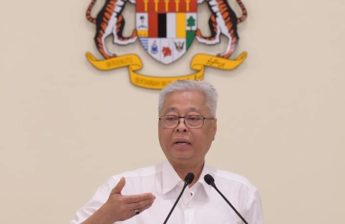KUALA LUMPUR, Dec 21 — Geriatric experts have urged the government to permit the recruitment of foreign-trained care workers to plug dire staff shortages amid rising demand for elderly care.
The Malaysian Society of Geriatric Medicine (MGSM) said the unity government had mixed messages when it came to addressing the country’s ageing population status.
MGSM president Dr Tan Maw Pin Dr Tan held that aged care service providers have been facing “unprecedented” challenges, amongst which is acute staff shortages.
She held that there are three main reasons that impede the aged care sector: the perception of care industry work, the ban on recruiting foreign workers, and the lack of resolution of legalisation of care homes.
“Malaysians perceive working in the care industry as lowly work. Despite caregiving now commanding decent wages, it is still a challenge to get Malaysians interested in this noble and potentially highly rewarding job. The perceived lack of career prospects is also a major barrier when the silver industry is only going to get bigger, and prospects for school leavers entering this industry can be considered good,” Dr Tan said in a written response to CodeBlue.
“The care industry is still not allowed to recruit foreign workers as the government has not lifted the moratorium on ‘welfare’ workers.
“The issue of legalisation of care homes under the Private Residential Aged Care Facilities Act 2018 remains unresolved, with the Act remaining unenforced five years after its passage.”
Dr Tan also attributed the lack of health care workers who specialise in geriatric care to conflicting jurisdiction of the issue in government. Senior citizens come under the “‘older persons sector” that falls under the purview of the Ministry of Women, Family and Community Development (KPWKM). Geriatric services, however, fall under clinical services under the Ministry of Health (MOH).
This, according to the professor in geriatric medicine at the University of Malaya, has greatly affected the delivery of geriatric services.
The United Kingdom, on the other hand, combines both health and social care in a single department led by the Secretary of State for Health and Social Care – the equivalent to Malaysia’s Health Minister.
“Despite desperate calls year on year for greater investment into the training of health care workers in geriatrics, the responses to the calls have fallen short due to the current structure of the Ministry of Health, which lends poorly in totality to the effective delivery of health and aged care for today’s population,” Dr Tan said.
“The Health White Paper does go some way to addressing this need for structural change, and we have seen efforts at addressing this, though it is too early to tell what changes will actually occur.”
Dr Tan held that the government does need to consider allowing certified foreign workers into the care sector on a short-term basis, as there may be no better solution available at the government’s disposal to address the immediate need for more care workers.
She added that the solution of hiring qualified foreign nationals will not only benefit Malaysia, but also address the economic needs of their home countries.
However, Malaysia needs to learn from the “bitter experience” of developed countries that are trying to plug the geriatric health care worker hole with more foreign workers which, according to Dr Tan, could be a potential recipe for disaster.
“The government is doing the right thing to provide focus on prevention through healthy ageing to reduce demand for care as well as clear initiatives to develop training programmes and career opportunities in this sector,” she said.
“It is hoped that with the united effort of media houses, non-governmental organisations, private sector together with government support, we can raise the game with regard to changing the landscape and image of the care sector. Care should be enabling, restorative where possible and comforting when maintenance or restoration of function is no longer possible.
“Hence, the deliverers of this form of care are the angels of our society and should be given a pedestal! This is the UN Decade of Healthy Ageing, and this calls for a whole of society approach, the government cannot do this on their own.”
Under then-Health Minister Dr Zaliha Mustafa, the government permitted the hiring of foreign-trained nurses by private health care facilities for a period of one year – starting from October 1, 2023 to September 30, 2024 – subject to a 40 per cent cap of the workforce in these facilities.
Although civil servants in both KPWKM and the MOH work tirelessly to meet the needs of senior citizens through various policies and projects, many of the issues faced by the elderly fall into the chasm that separates the ministries, Dr Tan said.
With a brighter spotlight on issues like hospital overcrowding and junior doctor staffing issues, the MOH appears to lack the capacity to prioritise aged care.
“Without structural change, it is likely that this problem will continue. Unless there is investment in social care, we will likely have even worse struggles with workforce numbers and productivity, since social care is expensive, and hence many of our working-aged adults will have to give up work to care for their older parents,” she said.
While MSGM looks forward to the Senior Citizen Bill that is projected to be tabled under KPWKM sometime next year, Dr Tan held that the bill needs to be drafted with the involvement of stakeholders.
MGSM has yet to receive a draft of the bill that should aid the practice of geriatricians who are at the forefront of care of older adults, such as decision-making or when there is evidence of elder abuse.
“We really look forward to a bill that would safeguard older individuals’ rights. The bill should, without being too clunky and ambitious, ensure that the older adults’ decision-making capacity is maintained throughout life, hence allowing for advanced directives, surrogate decision making and enduring power of attorney. There also needs to be mandatory reporting of potential elder abuse through an ‘at risk’ register,” Dr Tan said.
In addition to the Senior Citizens Bill, MSGM is also looking forward to the Ageing Nation Blueprint expected to be published in February 2024.
Dr Tan was happy to report that stakeholders were engaged in the forming of the blueprint and the blueprint appears promising as it utilises a “whole of government approach”.
She added that elder care financing has been discussed in various forums, one of which was launched by Prime Minister Anwar Ibrahim and which they were invited to attend.
“Universal pensions, long-term care insurance are some of the suggestions brought up, and we do believe they are good ones, but it remains to be seen whether these suggestions can be realised.”
Success Of Geriatric Care Depends On Workforce
Like MGSM, the Federation of Private Medical Practitioners’ Associations, Malaysia (FPMPAM) also urged the MOH to allow the hiring of foreign allied health care workers, describing geriatric care workers as the “vital ingredient” for the success of the aged care sector.
While the Malaysian Investment Development Authority (MIDA) is spearing many incentives, FPMPAM president Dr Shanmuganthan Ganeson held that the hiring of foreign staff is an eventuality that the MOH must consider.
“Local staff, once trained, leave Malaysia for better paying jobs elsewhere. Aged care seems to be regarded as the 3Ds [dangerous, dirty, and difficult] type of job, so not many takers here,” Dr Shanmuganathan told CodeBlue.
“Get qualified foreign nursing assistants on contracts; it could help inbound traffic to boost medical tourism too.”
When it comes to the Senior Citizens Bill, Dr Shanmuganathan said punitive action should only be reserved for the truly “delinquent, irresponsible” adult children who endanger the lives of their elderly parents via gross neglect.
Then-KPWKM Deputy Minister Aiman Athirah Sabu told the Dewan Rakyat last March that the bill may penalise people who send their aged parents to care facilities.
“The Maintenance of Parents Act provides for Singapore residents aged 60 years old and above who are unable to subsist on their own, to claim maintenance from their children who are capable of supporting them but are not doing so,” Dr Shanmuganathan pointed out.
“If the aged care facilities are of good standards, or catered for good senior living, then neglecting or dumping aged parents would not be an issue.”
Care partners for elderly parents have expressed their reservations about the Senior Citizens Bill, pointing out that those in the “sandwich generation” – who are taking care of both their young children and aged parents – don’t have the resources to provide adequate elderly care at home while juggling a full-time job.
Although Malaysia is projected to be an aged nation by 2035, Dr Shanmuganathan was of the opinion that efforts to address aged care in the country was still at the infancy stage.
Aged care financing in Malaysia as well has a long way to go, he said. The government also needs to address human capital needs, ease regulations to reduce start-up costs, and improve transparency.
“Though businesses are creating new senior living entities, the support from MOH appears to be insignificant and slow,” Dr Shanmuganathan said.
Demand For Home Care Might Drive Foreign Nurse Push
Medical Practitioners Coalition Association of Malaysia (MPCAM) president Dr Soo Tai Kang said the drive in demand for quality home care would ultimately spur the government into permitting the hiring of foreign nurses in aged care.
“Workforce is an issue in many sectors, especially less glamorous or less rewarding. I think the demand for qualified home care will drive the government to allow the hiring of foreign nurses.
“It is welcoming to put the children responsible and accountable for their parents’ care. However, the ministry should also regulate the care economy — a service for those who need to work and earn income to sustain [themselves],” said Dr Soo in a written response to CodeBlue.
The MPCAM president held that the MOH and government have not fared well in addressing geriatric care in Malaysia, saying “there is so much more preparation to be done.”
He also called out the government for not exploring elder care financing in detail.








